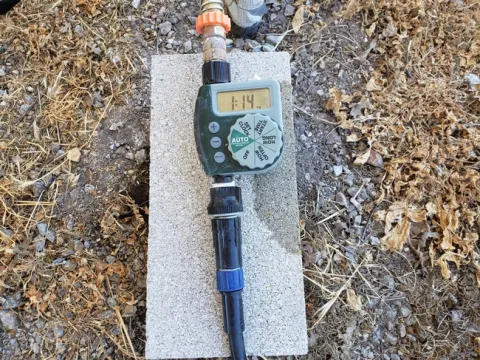
Soils and Water Management
By Leonard Cicerello UCCE Master Gardener
How can I get more enjoyment out of my gardens? Denise S. Morro Bay
I came across an old saying, “feed the soil, not the plant”. If you are lax in creating suitable soil for your different gardens, then chemical fertilizers can be like pastries. Your plants get a “rush”, but it is temporary. The plants may be nutritionally starving. Ideal soil management involves periodically spading organic matter into the soil, plus adding a layer of organic mulch to the to the top of the soil.
By continually adding organic amendments to the soil, it becomes nutrient rich as amendments decompose into beneficial bacteria, fungi, and nutrients which plants to thrive on.
Regardless of what type of soil you have, amendments will help your plants. Gardeners who have clay soil complain the most. An important thing to know about clay soil is that at a certain moisture content, the soil can be reduced to granules by rototilling, spading, or raking. The good thing about clay is that it retains moisture better than other soils. At the other extreme is sandy soil. Without amending, water drains quickly.
Water management. Some of us underwater; some overwater. Some of us only think about it during a drought or rainy season. Some install sprinkler systems and others install drip systems. A few even water wisely without an installed system. For optimum beauty, production, and conservation, know the plants' needs and water judiciously. Not all plants are equal. Roses require more water than most plants, while tomatoes are the opposite. To conserve soil moisture, maintain a few inches of mulch around your plants. Mulch is nutrient-rich and discourages weeds.
If you want to know more about garden soils and water management, please join us at the UCCE Master Gardener “Advice to Grow By” workshop on Saturday, July 20th in the auditorium at 2156 Sierra Way, San Luis Obispo, 10:00 to 12:00. The garden will be open, and docents will be available after the workshop until 1:00 p.m.

